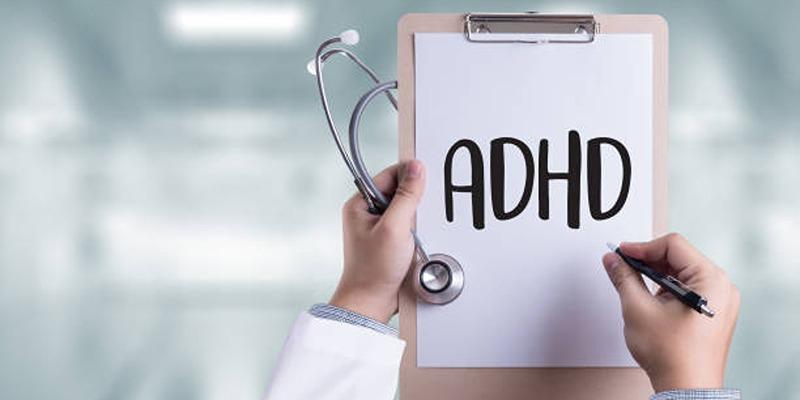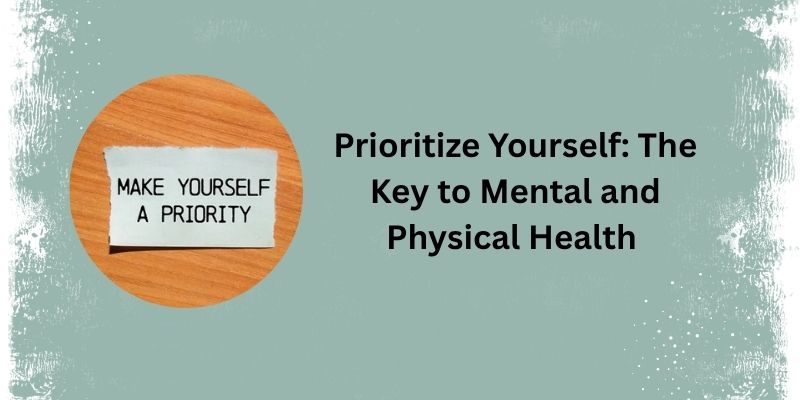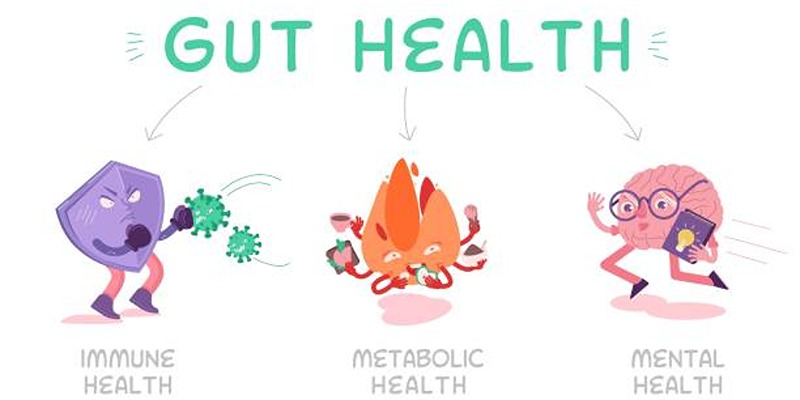Attention-Deficit/Hyperactivity Disorder (ADHD) is a complex neurodevelopmental condition often impacting focus, behavior, and impulse control. Recent studies have begun exploring the connection between ADHD and gut health, revealing the potential influence of the gut-brain axis. Understanding this relationship may unlock new treatment approaches and improve the quality of life for individuals with ADHD.
Understanding the Gut-Brain Connection:

The gut-brain axis refers to a bilateral communication between the central nervous system and the gastrointestinal tract. This relationship entails neural circuits, the immune system, and hormonal messages. The vagus nerve is important in relaying messages between the brain and the gut, whereas the gut microbiome, which is the group of microorganisms living in the digestive system, aids in moderating these communications.
Studies have established that intestinal microbes can make neurotransmitters such as serotonin, dopamine, and gamma-aminobutyric acid (GABA), which are fundamental in mood control, concentration, and brainpower. Dysfunctions of this microbiome can thus influence the neurological processes and be the cause of behavioral disorders, such as ADHD.
ADHD: A Brief Overview
ADHD is a disorder that occurs in both children and adults and is marked by consistent patterns of inattention and/or hyperactivity-impulsivity that disrupt the functioning or development. Common symptoms include:
- Problems with maintaining attention
- Memory loss in everyday routine
- Jiggling or wiggling
- Interrupting others
- Problems with planning activities.
While genetics plays a significant role in the development of ADHD, environmental and biological factors are also believed to influence the condition. One such factor now gaining attention is the health of the gut.
The Microbiome’s Potential Role in ADHD:
The human digestive system hosts trillions of microbes that support digestion, immune function, and even brain health. Research has indicated that children with ADHD may have different gut bacteria compositions compared to those without the condition.
For instance, certain bacterial strains associated with anti-inflammatory effects may be less abundant in individuals with ADHD, while other strains linked to inflammation or metabolic disturbances may be more prevalent. These differences in microbiota could potentially influence brain function through several mechanisms:
- Neurotransmitter production: Gut bacteria help synthesize and regulate brain-signaling chemicals.
- Immune response: Imbalances in gut microbes may increase systemic inflammation, which has been linked to changes in brain function.
- Barrier integrity: A compromised intestinal lining, sometimes referred to as “leaky gut,” might allow toxins or pathogens to enter the bloodstream and affect the brain.
These findings suggest that gut dysbiosis—an imbalance in the microbial ecosystem—could potentially influence the symptoms or severity of ADHD.
Inflammation and Its Impact on Brain Function:
Inflammation plays a key role in many chronic conditions, and growing evidence suggests it may also be relevant in ADHD. Some studies have found elevated markers of inflammation in individuals with the condition, including increased levels of cytokines—molecules that signal the immune system.
The gut microbiota is closely tied to immune regulation. When gut bacteria are out of balance, the immune system may become overstimulated, leading to chronic inflammation. This can disrupt the blood-brain barrier and affect the functioning of neural circuits responsible for attention, self-control, and impulse regulation.
Thus, inflammation driven by gut imbalances could be a factor that exacerbates ADHD symptoms, though more studies are needed to clarify the relationship.
Dietary Patterns and Gut Health:

What you eat has a big impact on your gut health. Diets packed with processed foods, refined sugars, and artificial additives can throw your gut microbiome out of balance. On the flip side, fiber-rich, plant-based foods help your gut thrive by boosting microbial diversity and keeping things stable. Your gut will thank you for choosing the right fuel!
Studies have shown that certain dietary patterns may influence ADHD symptoms. For example:
- Western-style diets, which are high in saturated fats and low in fiber, have been associated with a higher risk of attention-related difficulties.
- Mediterranean-style diets, rich in fruits, vegetables, whole grains, and healthy fats, may have a protective effect by supporting a healthier gut microbiome.
Furthermore, nutritional imbalances such as low levels of essential fatty acids, zinc, and magnesium have also been observed in some individuals with ADHD, although it’s unclear whether these are causes or consequences of the condition.
Probiotics and ADHD: What the Research Says:
Given the potential role of gut bacteria in ADHD, some researchers have explored whether probiotics—live microorganisms that provide health benefits—can help manage symptoms. Early findings suggest that probiotic supplementation may reduce behavioral symptoms in certain individuals by supporting a balanced microbiome and reducing inflammation.
However, the evidence is still preliminary. Different probiotic strains may have different effects, and the benefits may vary depending on individual biology. It is not yet clear which strains are most effective, what dosages are optimal, or how long treatment should last.
Still, these findings open the door to new, non-invasive approaches that could complement other forms of ADHD management.
The Role of Prebiotics and Fiber:
Prebiotics—non-digestible fibers that nourish beneficial gut bacteria—are another area of interest. Foods rich in prebiotics, such as bananas, oats, onions, and asparagus, can support gut health and encourage the growth of helpful microbes.
By promoting microbial diversity and reducing inflammation, prebiotics may indirectly support cognitive function. While direct research on prebiotics and ADHD is still limited, these dietary components are generally considered beneficial for overall gut-brain health.
Limitations and Considerations:
While the connection between gut health and ADHD is compelling, it is essential to interpret the research cautiously. Most studies are still in early stages, and the relationship is likely to be complex and influenced by multiple factors, including genetics, environment, and lifestyle.
Here are a few important considerations:
- Correlation is not causation: Differences in gut microbiota may not directly cause ADHD but could be secondary effects of behavior, diet, or medication use.
- Individual variability: Not all individuals with ADHD will show the same gut patterns or respond the same way to dietary changes.
- More research needed: Larger, long-term studies are necessary to determine how gut-targeted interventions might work in real-world settings.
Conclusion:
The relationship between ADHD and gut health is a growing area of scientific inquiry. Although still in its early stages, research suggests that the gut microbiome, inflammation, and dietary habits may all play a role in shaping cognitive and behavioral outcomes. While no single solution exists, improving gut health through a nutritious diet, supporting microbial balance, and reducing inflammation may offer meaningful support for individuals with ADHD.












